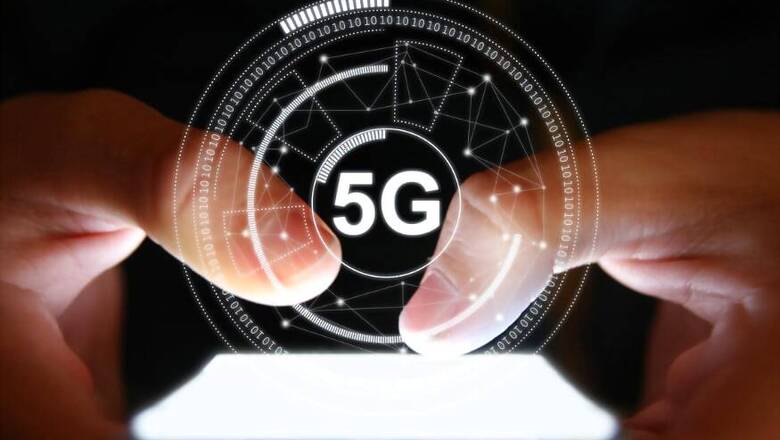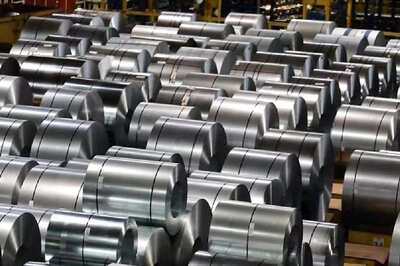
views
The 5G spectrum price suggested by the Department of Telecom is too high, a task force constituted by the finance ministry said, as it recommended rationalising of prices for making the next generation services affordable for all.
The industry has unanimously raised the issue of high spectrum price. However, the Department of Telecom (DoT) adopted the spectrum rate as recommended by the sector regulator Trai.
The task force, in a report released on Thursday, acknowledged stress in the telecom sector and said the Supreme Court judgement mandating companies to pay around Rs 1.35 lakh crore has placed some operators in a "precarious position" due to the short period of time in which they have to meet their liabilities.
It said for the upcoming auction of 5G airwaves, the DoT has suggested a base price of Rs 492 crore per megahertz, which is very high compared to the base price in countries where 5G is already deployed.
"The high price comes at a time when the demand for spectrum is likely to be subdued as consolidation has reduced the number of players in the sector to effectively only four," the report said.
The DoT has zeroed in on the base price suggested by the Telecom Regulatory Authority of India (Trai) and it has to be approved by the Cabinet for the proposed spectrum auction.
Telecom players have unanimously said the spectrum price proposed for the auction is too high. Bharti Airtel has already said it will not bid for 5G spectrum at the price.
The task force under the finance ministry said providing inclusive and affordable 5G services to all sections of the population in the country is important to achieve the National Digital Communications Policy goals.
"For this, participation of the private players in the 5G auction should be robust. In order to enable this, the authorities should rationalise all elements of spectrum pricing for the auction, including base price, period of payment of charges and interest rates," the report said.
The report also noted that lower penetration of digital infrastructure in rural areas and slow data speeds have restricted the full potential of digital technologies such as Internet of Things, cloud computing and artificial intelligence and recommended measures to address these issues.
"With continued increase in demand for data, additional telecom towers need to be installed to increase coverage in rural or non-metros and to increase capacity in metros. Currently, India has around 5.5 lakh towers and the industry believes the country will require additional around 1 lakh towers per year over the next 2-3 years to meet the estimated demand," the report said.
The task force said only about 25-30 per cent of telecom towers are connected through optical fibres and India will need to fiberise over 50-60 per cent of its towers ideally before launching 5G, which needs quick approval by state authorities for laying fibre, especially in metros and Tier 1 cities.
"There is an urgent need to fast track the progress, necessitating fundamental changes in the way we operate, specifically with respect to creation of digital communications infrastructure, which faces several hurdles...Investments in infrastructure need to be enhanced and universal last-mile connectivity needs to be promoted," the report said.
It said the telecom sector is already reeling under financial stress of Rs 7.7 lakh crore and the AGR liability is further going to add to uncertainty for some of the companies.
It said the liability on telecom companies imposed due to the apex court judgement pertains to assessments up till fiscal 2016.
"There are serious concerns about the capability and capacity of some of the companies to meet their contractual commitments," the report said.
According to the report, overall capital expenditure of Rs 309,672 crore would be incurred by both the Centre and states for fiscals 2020-25 to boost telecom infrastructure.
The projects on which the Centre will invest include Rs 37,284 crore for 4G services of BSNL and MTNL, Rs 14,768 crore for network for spectrum, Rs 13,000 crore for BharatNet and Rs 11,640 crore for miscellaneous projects.
The task force estimates private players' capital expenditure during the period to be around Rs 2.28 lakh crore.
"As per industry estimates, an additional 10 lakh towers need to be established and an 30 lakh kilometer of optical fibre cable (OFC) need to be laid by 2025. Typically, about Rs 50 lakh is the required investment for setting up a tower," the report said.

















Comments
0 comment